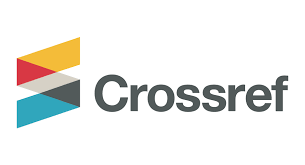Peran Bahasa dalam Konstruksi Hukum di Indonesia
 Abstract views: 954
,
Abstract views: 954
,
 PDF downloads: 828
PDF downloads: 828
Abstract
Peranan bahasa dalan konstruksi hukum memiliki makna yang sangat penting dalam perumusan norma-norma perundang-undangan di Indonesia. Ilmu hukum adalah ilmu pengetahuan yang berusaha menelaah tentang hukum yang ada, oleh karenanya ilmu hukum memiliki cara dangan mengunakan logikanya sendiri, yaitu logika hukum dan untuk kebutuhan, kepentingan keberfungsian keilmuannya baik bidang akademik maupun bidang praktis. Rumusan masalah yang akan diteliti adalah meliputi bagaimana peran bahasa dalam rekonstruksi hukum di Indonesia dan bagaimana seharusnya bahasa berperan dalam rekonstruksi hukum di Indonesia. Dalam artikel menekankan pada studi rancangan perundang-undangan. Dari studi ini dapat disimpulkan bahwa hukum memiliki bahasanya sendiri yang tidak sama dengan bahasa pada umumnya, yaitu bahasa hukum yang merupakan hadil dari rekonstruksi hukum itu sendiri. Ilmu hukum dengan segala stratifikasi keilmuannya dan struktur atau klasifikasi hukumnya beserta segala elemen-elemen pendukung sistemnnya sarat dengan bahasa-bahasa hukum yang mengandung artikulasi karakteristik sebagai bahasa keilmuan hukum dan praksis, sehingga untuk memahami disiplin keilmuannya dengan baik, maka harus menggunakan bahasanya sendiri yaitu bahasa hukum.
Downloads
References
Fence M. Wantu, Pengantar Ilmu Hukum, (Gorontalo, UNG Press: 2015).
I Dewa Gede Atmadja dan I Nyoman Putu Budiartha, Teori-Teori Hukum, (Malang, Setara Press: 2018).
Pierre Bourdieu, Bahasa dan Kekuasan Simbolik, (Yogyakarta, IRCiSoD, 2020).
Bruggink. J.J.H, Refleksi tentang Hukum, (Jakarta Citra Aditya:2009).
Rina Devianty. “Bahasa Sebagai Cermin Kebudayaan”. Jurnal Tarbiyah, Vol. 24, No. 2, (Juli-Desember, 2017).
https://m.atmajaya.ac.id/web/KontenUnit.aspx?gid=artikel-hki&ou=hki&cid=artikel-hki-bahasa-hukum-indonesia (diakses pada, Kamis, 18/11/2021)
Publishing your paper with As-Shahifah : Journal of Constitutional Law and Governance means that the author or authors retain the copyright in the paper. As-Shahifah granted an exclusive non commercial reuse license by the author(s), but the author(s) are able to put the paper onto a website, distribute it to colleagues, give it to students, use it in your thesis etc, so long as the use is not directed at commercial advantage or toward private monetary gain. The author(s) can reuse the figures and tables and other information contained in their paper published by As-Shahifah in future papers or work without having to ask anyone for permission, provided that the figures, tables or other information that is included in the new paper or work properly references the published paper as the source of the figures, tables or other information, and the new paper or work is not direct at private monetary gain or commercial advantage.
As-Shahifah journal provides immediate open access to its content on the principle that making research freely available to the public supports a greater global exchange of knowledge. This journal is licensed under a Creative Commons Attribution-ShareAlike 4.0.This license lets others remix, tweak, and build upon your work non-commercially, and although their new works must also acknowledge & be non-commercial, they don’t have to license their derivative works on the same terms.
As-Shahifah journal Open Access articles are distributed under this Creative Commons Attribution-ShareAlike 4.0 International License (CC BY-SA). Articles can be read and shared for noncommercial purposes under the following conditions:
- BY: Attribution must be given to the original source (Attribution)
- SA: If you remix, transform, or build upon the material, you must distribute your contributions under the same license as the original.









